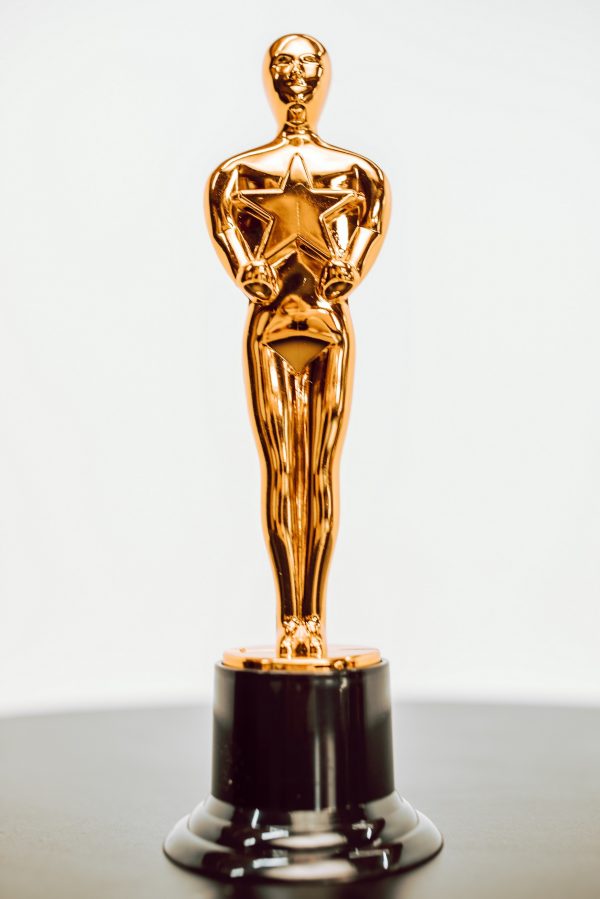
It’s that time of year again – time for my predictions of the winners at the upcoming annual Academy Awards. For me, this is usually a labor of love, but, considering the dearth of truly good films in 2021 and a class of nominees that leaves a lot to be desired in many categories, this hasn’t been an especially fun process this year (sorry for the downer mood, folks). Nevertheless, while several of the likely winners have come into view, a few are still up for grabs. So, with that said and for what it’s worth, here are my picks for who will take home statues in the top six categories on Oscar night.
Best Actor
The Field: Javier Bardem, “Being the Ricardos”; Benedict Cumberbatch, “The Power of the Dog”; Andrew Garfield, “Tick, Tick … Boom!”; Will Smith, “King Richard”; Denzel Washington, “The Tragedy of Macbeth”
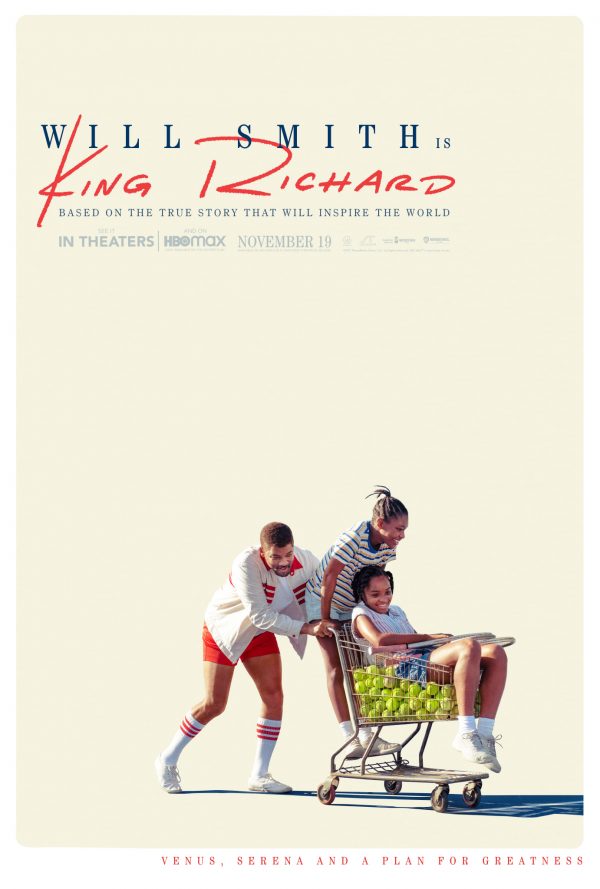
Who Will Likely Win: Will Smith. He has captured virtually every statue of significance throughout awards season, and I don’t see any reason why that should change on Oscar night. Having been passed over twice before for “Ali” (2001) and “The Pursuit of Happyness” (2006) (and snubbed for a nomination for his role in “Concussion” (2015)), I think the Academy believes Smith has paid his dues and is finally in line for a prize, one of those so-called “overdue Oscars.” However, while his performance as the father and manager of tennis phenoms Venus and Serena Williams in “King Richard” was eminently capable, it was far from his best work. While watching the film, I didn’t see Smith disappear into the role in the same way he has in many other parts, making me feel as though I was clearly “watching Will Smith acting” and not “seeing a character portrayed on screen.” Still, I think this is his time, and he’ll finally collect, more for a career’s worth of good work than for this particular role.
Who Should Win (Based on the Nominees): Denzel Washington. The actor’s turn as Macbeth in William Shakespeare’s classic “The Tragedy of Macbeth” truly is the class of this field, and he genuinely deserves to come up the winner. However, having already claimed two awards for “Glory” (1989) and “Training Day” (2001), along with six additional nominations, the Academy may be reluctant to award him another trophy until he delivers what is seen as a signature career-defining performance, a characterization it’s unlikely to attribute to this role, despite its excellence. There’s almost assuredly another Oscar in his future, but not this time.
Who Should Win (Based on All Eligible Candidates): Mahershala Ali. The actor’s performance in the heartfelt sci-fi drama “Swan Song” was the best male lead portrayal of 2021, and it was deservedly recognized with nominations in the Golden Globe and BAFTA Award contests. However, given that he has already won two Oscars in recent years for “Moonlight” (2016) and “Green Book” (2018), he was probably a long shot at earning another statue (and possibly even another nomination) quite so soon, especially for a film that received lukewarm reviews and precious little attention. Like Denzel Washington, though, with two Oscars under his belt, there is likely another award in his future. But, given the timing of his prior wins and the requirement that his next one will need to be a career-defining performance, he’ll have to wait for now, despite the quality of this excellent portrayal.
Possible Dark Horses: Andrew Garfield and Benedict Cumberbatch. There has been a lot of quiet buzz about these performances, and diehard fans of the actors’ portrayals in “Tick, Tick … Boom!” and “The Power of the Dog,” respectively, are no doubt in their corner. However, I don’t think there’s enough gas in the tank for either of them to pull off an upset win. These performances can probably best be seen as clout-building portrayals, down payments on the future that may well stand them in good stead for later wins.
Also-Rans: Javier Bardem. The actor’s solid portrayal of TV icon Desi Arnaz in “Being the Ricardos” was a solid performance, to be sure, but not especially memorable. Bardem should look upon his nomination as his award and take solace in his previous win for “No Country for Old Men” (2007).
Who Should Have Been Left Out: Andrew Garfield and Javier Bardem. Again, these were solid performances but not overly memorable, in large part because their films weren’t especially memorable. Indeed, there were other contenders (see below) who were more deserving of nominations in my opinion.
Who Else Should Have Been Considered: In my view, a number of other actors should have been considered in this category. In addition to Mahershala Ali for “Swan Song,” other worthy contenders include Leonardo DiCaprio for the raucous satire “Don’t Look Up,” newcomer Jude Hill for the heartfelt childhood memoir “Belfast,” Simon Rex for the outrageous dark comedy “Red Rocket” and Frankie Faison for the little-known indie offering “The Killing of Kenneth Chamberlain.”
Snubs: Mahershala Ali, for the reasons discussed above. Some might also make a strong argument for Leonardo DiCaprio, but, as someone who won not long ago for his performance in “The Revenant” (2015) and who has been nominated five additional times, the Academy may have been reluctant to grant him another nod, especially for a film as controversial and divisive as “Don’t Look Up” (more on this in the best picture discussion).
Best Actress
The Field: Jessica Chastain, “The Eyes of Tammy Faye”; Olivia Colman, “The Lost Daughter”; Penélope Cruz, “Parallel Mothers” (“Madres paralelas”); Nicole Kidman, “Being the Ricardos”; Kristen Stewart, “Spencer”
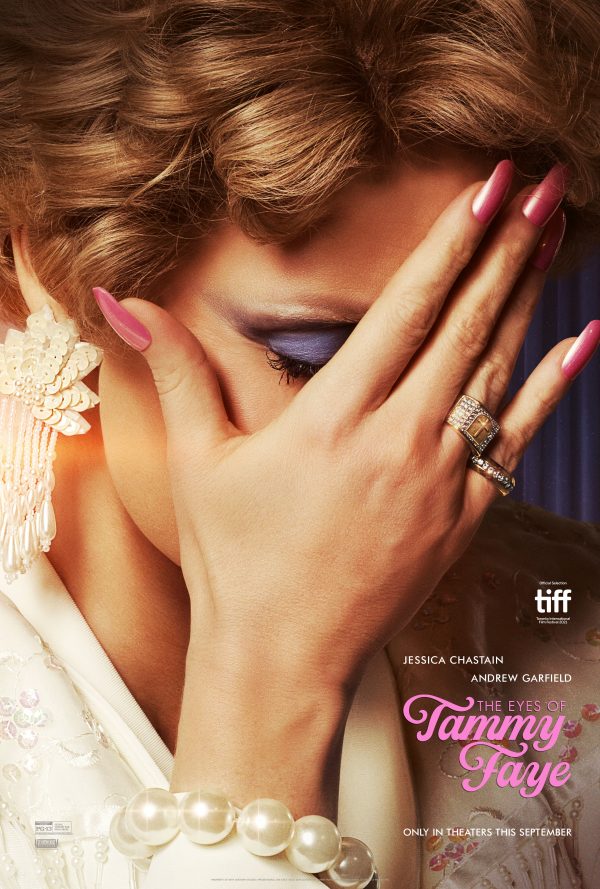
Who Will Likely Win: Jessica Chastain. In my view, this is the most difficult category to call, given the fact that there have been multiple winners in the competitions in the run-up to the Oscars and also because there has been no across-the-board consistency in the fields of nominees in those various contests. However, based on how outcomes have progressed over awards season, it looks like Jessica Chastain, for her portrayal of colorful televangelist Tammy Faye Baker in “The Eyes of Tammy Faye,” has emerged as the frontrunner. Admittedly, her status as such is not overwhelmingly strong, but it appears as though she has a slight edge over her competitors at this point.
Who Should Win (Based on the Nominees): Kristen Stewart. The actress’s superb portrayal of Princess Diana in the biopic “Spencer” truly is the best of the bunch in this category. And, even though she was considered the early frontrunner prior to the beginning of awards season, her fortunes appear to have faded. Despite her success in critics’ award circles, her failure to win any other significant awards (and, in some cases, her failure to even capture nominations in some competitions), along with mixed reviews of this controversial film, seem to have undermined her chances of capturing the Oscar. Of course, considering the volatility of this field of nominees, there’s no telling what might happen, and she could well end up a well-deserved surprise winner. (By the way, this is not to suggest that Chastain is undeserving (she turns in a fine performance here, as she did in her previous two nominations for “The Help” (2011) and “Zero Dark Thirty” (2013)), but, having been passed over twice before, the Academy may be ready to reward her with an Oscar – and one that comes from a fine portrayal.)
Who Should Win (Based on All Eligible Candidates): Kristen Stewart. This truly was the best female lead performance of 2021, and Stewart genuinely deserves this award. I’d be thrilled if she ended up claiming it.
Possible Dark Horses: Virtually everyone in the field of nominees. Again, given the absence of a clear frontrunner in this category, conceivably anyone who walks away with the statue could be characterized as a dark horse. Beyond Chastain, perhaps the strongest alternate candidate here is Penélope Cruz for her fine performance in the Spanish domestic drama “Parallel Mothers” (“Madres paralelas”), the strongest asset that film has going for it. Her momentum seems to have been steadily climbing, but it’s unclear if it will end up being enough to capture the statue.
Also-Rans: Essentially, anyone who doesn’t win. In fact, this designation is just as applicable across the board in this field as the dark horse characterization is. However, this seems most applicable to Olivia Colman for her portrayal of a middle-aged woman looking back on herself as a onetime-young mother in the drama “The Lost Daughter” and Nicole Kidman for her role as Lucille Ball in “Being the Ricardos.” With Colman’s win for “The Favourite” (2018) and her nomination for “The Father” (2020), it may well be too soon for another award. And, as for Kidman, well, see below…
Who Should Have Been Left Out: Nicole Kidman, Nicole Kidman, Nicole Kidman. My goodness, what a dreadful performance. Kidman’s endless mugging for the camera makes for a very trying watch. It’s as if viewers are not watching a portrayal of Lucille Ball but one of “Nicole Kidman IS Lucille Ball.” The decision to cast Kidman in the role was truly an awful one; the decision to nominate her for the performance in this and other previous awards competitions is even worse.
Who Else Should Have Been Considered: In a year when there were many outstanding female lead performances, it had to have been difficult to trim the field down to five nominees (though eliminating Kidman would have at least opened up one slot to a more deserving nominee). Some of those worthy of consideration include Lady Gaga for the campy biographical thriller “House of Gucci,” Tessa Thompson for the period piece “Passing,” Jennifer Hudson for the Aretha Franklin biopic “Respect,” Cannes Film Festival winner Renate Reinsve for the Norwegian romcom/character study “The Worst Person in the World” (“Verdens verste menneske”), Virginie Efira for the French Hitchcockian drama “Madeleine Collins” and Robin Wright for the moving personal drama “Land.”
Snubs: Lady Gaga and Jennifer Hudson. They both deserved to be in the running. Their exclusions represent significant snubs.
Best Supporting Actor
The Field: Ciarán Hinds, “Belfast”; Troy Kotsur, “CODA”; Jesse Plemons, “The Power of the Dog”; J.K. Simmons, “Being the Ricardos”; Kodi Smit-McPhee, “The Power of the Dog”
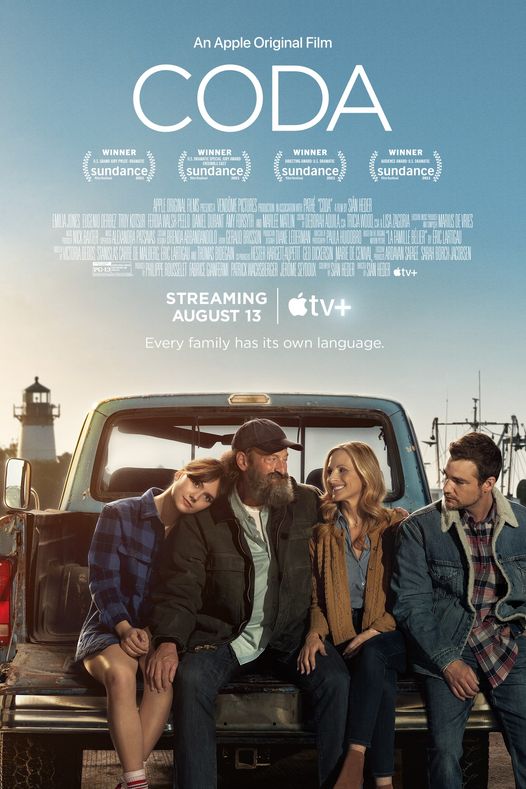
Who Will Likely Win: Troy Kotsur. Beginning with the Screen Actors Guild Award in this category, Kotsur has swept everything since then for his portrayal of a deaf fisherman and family man in “CODA,” and his momentum only seems to be getting stronger, something that, along with the film’s SAG Award for best ensemble cast, has aided “CODA” in becoming a viable contender for best picture honors. I expect this trend to continue on Oscar night.
Who Should Win (Based on the Nominees): Kodi Smit-McPhee or Ciarán Hinds. Despite the accolades Kotsur has earned with his multiple award wins, I don’t believe his is the best performance in this category. In my opinion, I’d much rather see the award go to Smit-McPhee for his portrayal of a sensitive young man in a world of cowboy machismo on steroids in the period piece Western “The Power of the Dog” or to Hinds for his role as a kindly Irish grandfather in “Belfast.” This might be seen as an unpopular and politically incorrect view on my part, but I’m standing by my opinion here. I simply believe these two performances were superior to Kotsur’s work.
Who Should Win (Based on All Eligible Candidates): Kodi Smit-McPhee or Ciarán Hinds. Again, I believe these were the two best supporting male performances of 2021, and I see them as the most deserving candidates. I would be pleased by a win by either of them in this category.
Possible Dark Horses: Kodi Smit-McPhee and Ciarán Hinds. At the risk of sounding like a broken record, I’d have to name Smit-McPhee and Hinds as the strongest contenders in this regard. In part that’s due to the fact that these are the only two actors to best Kotsur in this category this awards season, with Hinds winning the National Board of Review Award and Smit-McPhee collecting the Golden Globe statue, even though I don’t believe either of them has enough clout to pull off an upset at the Oscars.
Also-Rans: J.K. Simmons and Jesse Plemons. I was surprised at these nominations, since I didn’t believe that either of these performers was on the radar for such recognition. Simmons’s portrayal of gruff veteran actor William Frawley in “Being the Ricardos” was certainly adequate, but award-worthy (especially when compared to his deserved win for his role in “Whiplash” (2014))? The same can be said of journeyman actor Jesse Plemons, an often-overlooked performer, for his turn as a soft-spoken ranch owner often bullied by his brother in “The Power of the Dog.” In both of these cases, the actors should consider their nominations as their awards.
Who Should Have Been Left Out: J.K. Simmons and Jesse Plemons, for the reasons cited above.
Who Else Should Have Been Considered: There were many deserving candidates in this category in 2021, and any of them would have made fine additions to this field. Some of the better portrayals in this category were turned in by Jason Isaacs and Reed Birney in the taut domestic drama “Mass”; Jared Leto, Al Pacino and Jeremy Irons in the campy romp “House of Gucci”; Andre Holland and Bill Camp in the period piece race relations drama “Passing”; Mark Rylance in the satirical dark comedy “Don’t Look Up”; Andrew Garfield in the tragicomic biopic “The Eyes of Tammy Faye”; Willem Dafoe in the noir-esque thriller “Nightmare Alley”; Ben Affleck in the coming of age memoir “The Tender Bar”; Colman Domingo in the edgy fact-based dark comedy “Zola”; Enrico Natale for the fact-based thriller “The Killing of Kenneth Chamberlain”; and Fred Melamed for the hilarious Jewish yarn “Shiva Baby.”
Snubs: Despite the wealth of worthy candidates, I can’t say there were any obvious snubs in this category, though replacements for Simmons and Plemons would have strengthened the field.
Best Supporting Actress
The Field: Jessie Buckley, “The Lost Daughter”; Ariana DeBose, “West Side Story”; Judi Dench, “Belfast”; Kirsten Dunst, “The Power of the Dog”; Aunjanue Ellis, “King Richard”

Who Will Likely Win: Ariana DeBose. She has captured every major award in this category for which she was eligible, and DeBose has a virtual lock on this award at the Oscars. Her portrayal of a feisty Puerto Rican immigrant in 1950s New York in Steven Spielberg’s remake of the classic musical “West Side Story” is one this film’s strongest assets, and she’s genuinely deserving of whatever honors she receives. This truly is a fine example of the right performer winning for the right performance.
Who Should Win (Based on the Nominees): Ariana DeBose, for the reasons cited above.
Who Should Win (Based on All Eligible Candidates): In addition to DeBose, there are many other candidates who would have been equally deserving of a win in this category (many of them without nominations), and good arguments could certainly be made for three of them in particular: Frances McDormand as the manipulative wife of the tragic protagonist in “The Tragedy of Macbeth,” Cate Blanchett as a sinister therapist in “Nightmare Alley” and Meryl Streep as a clueless, image-conscious president in “Don’t Look Up.” However, given the multiple awards that have already been captured by each of these actresses (especially McDormand’s two recent victories for “Three Billboards Outside Ebbing, Missouri” (2017) and “Nomadland” (2020)), nominations, let alone wins, were unlikely, despite the caliber of their performances.
Possible Dark Horses: Aunjanue Ellis. The actress’s portrayal of the strong-willed wife of tennis promoter Richard Williams in “King Richard” has been a favorite of fans and critics since the picture’s release, and, in all likelihood, it’s the only performance with a potential shot to unseat the favorite. But, even with that generous support, it’s probably not enough to pull off the upset.
Also-Rans: Anyone who isn’t Ariana DeBose. That’s how strong the frontrunner’s momentum is at this point. It’s a shame to have to characterize someone like Jessie Buckley for her portrayal of Olivia Colman’s younger self in “The Lost Daughter” in this way, given the strength of her performance and very deserving inclusion as a nominee in this category. However, like Garfield and Cumberbatch in the best actor race, this nomination could be viewed as a meritorious down payment toward future recognition.
Who Should Have Been Left Out: Kirsten Dunst and Judi Dench. I’m at a loss to understand the fascination with Dunst’s performance as a troubled rancher’s wife in “The Power of the Dog,” and I really don’t consider it to have been strong enough to earn a nomination in this category. As for Dench, she has turned in yet another solid performance here as a kindly Irish grandmother in “Belfast,” but it’s far from her strongest work, which makes me wonder how she made it onto the radar as a potential nominee, especially since she collected no other nods for this portrayal during this year’s awards season. In both of these cases, I believe there were other candidates who were more deserving of making the cut.
Who Else Should Have Been Considered: As in the supporting actor category, there were many other worthy candidates for this field. In addition to McDormand and Streep, as discussed above, and Blanchett for her roles in both “Nightmare Alley” and “Don’t Look Up,” there were others who would have made welcome additions to this list, including Caitríona Bialfe as a mother under pressure in “Belfast,” Rita Moreno as a grandmother worried about her at-risk grandson in “West Side Story,” Ruth Negga as a woman with a not-so-secret secret in “Passing,” Martha Plimpton and Ann Dowd for their gripping portrayals as grieving mothers in “Mass,” Gaby Hoffman as a young mother trying to juggle multiple responsibilities in “C’mon C’mon,” Suzanna Son as a flirtatious young vamp in “Red Rocket” and Polly Draper as an overbearing Jewish mother in “Shiva Baby.” Two final performances by legendary actresses who have passed on are also worthy of note: Diana Rigg for her role as a sinister old curmudgeon in “Last Night in Soho” and Cloris Leachman as a spry, insightful grandmother in the Canadian release “Jump, Darling.”
Snubs: Conceivably speaking, one could argue that there were quite a few snubs in this category, but, realistically speaking, that would be hard to justify, given that there are only five nominations available. However, one could certainly argue that McDormand, Streep and Blanchett were indeed overlooked here. The same might also be said for Negga, who had deservedly earned a number of nominations in other competitions. Perhaps these omissions are better characterized as “oversights” than as blatant snubs, but their absence is nevertheless noticeable.
Best Director
The Field: Paul Thomas Anderson, “Licorice Pizza”; Kenneth Branagh, “Belfast”; Jane Campion, “The Power of the Dog”; Ryûsuke Hamaguchi, “Drive My Car” (“Doraibu mai kâ”); Steven Spielberg, “West Side Story”
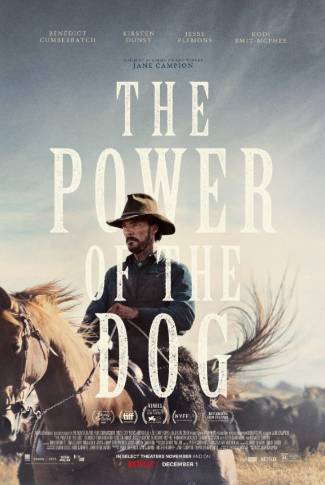
Who Will Likely Win: Jane Campion, but with a caveat. Even though Campion has dominated awards season for her work on “The Power of the Dog,” some have speculated that her lock on the Oscar may no longer be as solid as it had been in light of off-handed comments she made during her acceptance speech at the Critics Choice Awards. It may seem petty and improbable that a very public gaffe can effectively torpedo someone’s chances at winning an award, but it has happened before, and there’s no reason to believe that it couldn’t happen again, especially in an age of unrelenting political correctness. In light of that, some believe Campion may have shot herself in the foot, opening the door to other contenders, most notably Kenneth Branagh for his semi-autobiographical memoir “Belfast.” Personally, I don’t believe this is going to happen in this category, but Campion’s misstep may have weakened the film’s chances in the best picture category (see below).
Who Should Win (Based on the Nominees): Kenneth Branagh. For my money, Branagh is by far the class of the field in the director’s race. He truly deserves to win, and he can’t be ruled out in light of the foregoing, but it all depends on how much impact the Campion incident will affect the outcome.
Who Should Win (Based on All Eligible Candidates): Adam McKay. In my view, the director of the satirical dark comedy “Don’t Look Up,” is the best choice for this award, but, given that the filmmaker of this divisive and controversial picture isn’t nominated, that obviously won’t happen. That’s unfortunate; this film has been unfairly criticized, and its director deserves to win.
Possible Dark Horses: Kenneth Branagh. If the Campion incident ends up having a significant impact on Oscar voting, I believe that will open the door for Branagh, and he thus wouldn’t be seen as a dark horse at that point. If that doesn’t come to pass, however, he’ll retain this status, which could hamper his chances of pulling off an upset.
Also-Rans: Paul Thomas Anderson, Ryûsuke Hamaguchi and Steven Spielberg. These three filmmakers are bona fide long shots for their work on “Licorice Pizza,” “Drive My Car” (“Doraibu mai kâ”) and “West Side Story,” respectively. They should consider their nominations as their awards.
Who Should Have Been Left Out: Paul Thomas Anderson, Ryûsuke Hamaguchi and Jane Campion. “Licorice Pizza” and “Drive My Car” (“Doraibu mai kâ”) both left much to be desired, in my opinion, and their directors had no business being nominated. As for “The Power of the Dog,” Campion created a work that was well-acted and beautiful to look at but lacked a satisfactory narrative and script. And, even though she may be the frontrunner, I don’t believe her work was solid enough to merit a nomination in this category.
Who Else Should Have Been Considered: Had the three directors noted above been left out of the running, it would have opened up slots for more deserving candidates. In addition to McKay (see above), other worthy contenders include Joel Coen for “The Tragedy of Macbeth,” Ridley Scott for “House of Gucci,” Pablo Larraín for “Spencer,” Rebecca Hall for “Passing,” Joachim Trier for “The Worst Person in the World” (“Verdens verste menneske”), and newcomers Alex Camilleri for “Luzzu” and Valdimar Jóhannsson for “Lamb” (“Dýrið”).
Snubs: Adam McKay, Joachim Trier and Joel Coen. In addition to McKay’s exclusion as discussed above, the omission of Trier and Coen could be seen as possible snubs as well. Their work on “The Worst Person in the World” (“Verdens verste menneske”) and “The Tragedy of Macbeth,” respectively, was widely praised, and the lack of recognition they received in turn is regrettable, especially in light of the accolades awarded to filmmakers who produced inferior work.
Best Picture
The Field: “Belfast,” “CODA,” “Don’t Look Up,” “Drive My Car” (“Doraibu mai kâ”), “Dune,” “King Richard,” “Licorice Pizza,” “Nightmare Alley,” “The Power of the Dog,” “West Side Story”
What Will Likely Win: At this juncture, I see this as a three-way race among “The Power of the Dog,” “Belfast” and “CODA.” If track record is the determining factor among these leading candidates, then the edge would go to “The Power of the Dog.” However, in light of the Campion incident discussed above, the influence of the picture’s track record could be diminished, opening up the door for its two main competitors. But there’s another reason why “Belfast” and “CODA” could step up to the plate – given how image-conscious the Oscars can be, the Academy often tries to select best picture winners that send the right message. And, in a world beset by so many trying issues these days, the Academy may look to choose a winner that embodies uplifting, inspirational, heartwarming values, which is where “Belfast” and “CODA” come into play, both of which are in striking contrast to the darker, more menacing tone of “The Power of the Dog.” In particular, considering the momentum that “CODA” has been building of late, it could easily rise to the top and snatch away the Oscar in a last-minute upset win, much the way “Birdman” (2014), “Moonlight” (2016), “Green Book” (2018) and “Parasite” (“Gisaengchung”) (2019) have in recent years. So what will take home the statue? I’m going out on a limb here – I believe it will be “CODA” in an upset, despite it being an outcome I would disagree with.

What Should Win (Based on the Nominees): “Don’t Look Up.” For the reasons covered in the best director discussion, this satirical dark comedy deserves to win. As my choice for best picture of 2021, this hilarious release had me in stitches from start to finish, all the while delivering a pointed and poignant message. However, given the controversial and divisive nature of this Netflix release, I don’t expect it to win; in fact, I’m surprised it even managed to land a nomination (though I’m certainly glad it did). As the only best picture nominee with a negative Rotten Tomatoes rating, “Don’t Look Up” doesn’t stand a chance and should consider its nomination as its award. With that said, if I were to name my pick among the three frontrunners, my choice would be “Belfast,” a delightful offering that would make a fine best picture winner. However, given its underdeveloped visibility and tepid performance at the box office, it may not have enough pull among Academy voters to claim the top prize.
What Should Win (Based on All Eligible Candidates): “Don’t Look Up,” for the reasons discussed above.
Possible Dark Horses: “CODA” and “Belfast,” for the reasons discussed above. And, in light of the potential impact of the Campion incident, their stars may be rising, making their designations as dark horses increasingly moot.
Also-Rans: Anything that isn’t “The Power of the Dog,” “Belfast” or “CODA.” The other seven candidates simply don’t have enough oomph behind them to put them over the top.
What Should Have Been Left Out: Sadly, most of the field. Given the weakness of this class of nominees, most of the contenders shouldn’t have made the cut in the first place, in my opinion. “Drive My Car” (“Doraibu mai kâ”), “Dune,” “King Richard,” “Licorice Pizza,” “Nightmare Alley,” and frontrunners “The Power of the Dog” and “CODA” have no business being in this field. They are poor to mediocre offerings not worthy of this distinction.
What Else Should Have Been Considered: The elimination of seven contenders from the field of 10 nominees would have opened up ample space for more deserving nominees. Among those worthy of consideration are “Swan Song,” “Spencer,” “The Tragedy of Macbeth,” “House of Gucci,” “Mass,” “Passing,” “The Worst Person in the World” (“Verdens verste menneske”), “Red Rocket,” “The Killing of Kenneth Chamberlain,” “Luzzu,” “Lamb” (“Dýrið”) and “The Hand of God” (“È stata la mano di Dio”).
Snubs: “Passing” and “The Worst Person in the World.” Given the multiple nominations “Passing” has picked up in previous competitions and the widespread praise “The Worst Person in the World” has earned, these films definitely deserved a seat at the table. It’s unfortunate that they didn’t get one.
The Oscars will be handed out in televised ceremonies on Sunday March 27. I’ll post my report card on these predictions thereafter. Enjoy the show!
(Oscar® and Academy Award® are registered trademarks of the Academy of Motion Picture Arts & Sciences.)
Copyright © 2022, by Brent Marchant. All rights reserved.

No comments:
Post a Comment